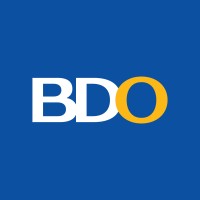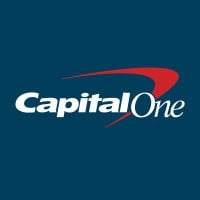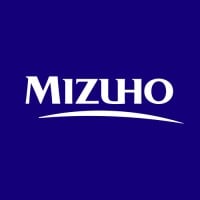
BDO Unibank Company Cyber Security Posture
bdo.com.phBDO is a full-service universal bank in the Philippines. It provides a complete array of industry-leading products and services including Lending (corporate and consumer), Deposit-taking, Foreign Exchange, Brokering, Trust and Investments, Credit Cards, Corporate Cash Management, and Remittances in the Philippines. Through its local subsidiaries, the Bank offers Leasing and Financing, Investment Banking, Private Banking, Rural Banking, Life Insurance, Insurance Brokerage, and Stock Brokerage services. BDO's institutional strengths and value-added products and services hold the key to its successful business relationships with customers. Its branches remain at the forefront of setting high standards as a sales- and service-oriented, customer-focused force. BDO has one of the largest distribution networks, with more than 1,600 operating branches and over 4,500 ATMs nationwide. Through selective acquisitions and organic growth, BDO has positioned itself for increased balance sheet strength and continuing expansion into new markets. As of 30 June 2022, BDO is the country's largest bank in terms of total resources, customer loans, deposits, and assets under management. BDO is a publicly listed company (PLC), with its shares currently being traded at the Philippine Stock Exchange under the symbol “BDO”. BDO Unibank is regulated by the Banko Sentral ng Pilipinas. https://www.bsp.gov.ph For concerns, please visit any BDO branch near you or reach us through any of the channels listed in the Consumer Assistance page of our website: https://www.bdo.com.ph/consumer-assistance. Deposits are insured by PDIC up to P500,000 per depositor. The BDO, BDO Unibank and other BDO-related trademarks are owned by BDO Unibank, Inc. All Rights Reserved.
BDO Unibank Company Details
bdo-unibank
15878 employees
314579.0
52
Financial Services
bdo.com.ph
18
BDO_2569643
In-progress
Between 800 and 900
This score is AI-generated and less favored by cyber insurers, who prefer the TPRM score.
 BDO Unibank Global Score
BDO Unibank Global Score.png)

BDO Unibank Company Scoring based on AI Models
| Model Name | Date | Description | Current Score Difference | Score |
|---|---|---|---|---|
| AVERAGE-Industry | 03-12-2025 | This score represents the average cybersecurity rating of companies already scanned within the same industry. It provides a benchmark to compare an individual company's security posture against its industry peers. | N/A | Between 800 and 900 |
BDO Unibank Company Cyber Security News & History
| Entity | Type | Severity | Impact | Seen | Url ID | Details | View |
|---|
BDO Unibank Company Subsidiaries

BDO is a full-service universal bank in the Philippines. It provides a complete array of industry-leading products and services including Lending (corporate and consumer), Deposit-taking, Foreign Exchange, Brokering, Trust and Investments, Credit Cards, Corporate Cash Management, and Remittances in the Philippines. Through its local subsidiaries, the Bank offers Leasing and Financing, Investment Banking, Private Banking, Rural Banking, Life Insurance, Insurance Brokerage, and Stock Brokerage services. BDO's institutional strengths and value-added products and services hold the key to its successful business relationships with customers. Its branches remain at the forefront of setting high standards as a sales- and service-oriented, customer-focused force. BDO has one of the largest distribution networks, with more than 1,600 operating branches and over 4,500 ATMs nationwide. Through selective acquisitions and organic growth, BDO has positioned itself for increased balance sheet strength and continuing expansion into new markets. As of 30 June 2022, BDO is the country's largest bank in terms of total resources, customer loans, deposits, and assets under management. BDO is a publicly listed company (PLC), with its shares currently being traded at the Philippine Stock Exchange under the symbol “BDO”. BDO Unibank is regulated by the Banko Sentral ng Pilipinas. https://www.bsp.gov.ph For concerns, please visit any BDO branch near you or reach us through any of the channels listed in the Consumer Assistance page of our website: https://www.bdo.com.ph/consumer-assistance. Deposits are insured by PDIC up to P500,000 per depositor. The BDO, BDO Unibank and other BDO-related trademarks are owned by BDO Unibank, Inc. All Rights Reserved.
Access Data Using Our API

Get company history
.png)
BDO Unibank Cyber Security News
BDO Unibank keeps customers first with commitment to excellence and innovation
BDO Unibank (BDO) has expanded its capabilities both through digital and physical channels. And impressive growth in core and strategic areas earned the bank ...
How SM Group leverages AI, tech vs data theft
The SM Group banks on artificial intelligence (AI), biometrics, online verification technology, and literacy projects with other businesses and ...
Philippines BDO Unibank Urges Tough Cybercrime Oversight
The country's biggest bank, BDO Unibank Inc., is asking that the next president ratchet up legislation and enforcement to thwart cybercrime.
PH banks say digital systems up again amid global cyber outage
Several Philippine banks that have been affected by the global cyber outage have said that their online and digital systems are again up ...
Cyber risks: protecting the bank’s credit rating
As new technology emerges, debt watchers consider cybersecurity risk issues as one of the most important factors in the assessment of banks' credit ratings.
BDO, UnionBank face sanctions over hacked accounts
There was unauthorized access of about 700 accounts with BDO Unibank and fund transfers were made, mostly bound for accounts with UnionBank.
Philippines BDO Unibank Urges Tough Cybercrime Oversight
The family of the late billionaire Henry Sy owns BDO, and the bank recently lost money after an online fraud channeled funds to accounts at another Philippine ...
BancNet fortifies cybersecurity, pushes tech enhancements
BancNet Inc. is further fortifying cybersecurity measures as the banking sector leverages technology to enhance operational efficiency, detect fraud and ...
BSP to Impose Sanctions on BDO and UnionBank over 2021 Hacking Incident
The Bangko Sentral ng Pilipinas (BSP) announced that it will sanction SM Group's BDO Unibank and the Aboitiz-led Union Bank of the Philippines (UnionBank)

BDO Unibank Similar Companies

Capital One
At Capital One, we're making things better for our customers and associates through innovation and collaboration. We were founded on the belief that everyone deserves financial freedom—and are dedicated to a world where all have equal opportunity to prosper. Banking is in our DNA, but we are so mu

Banco Falabella
Te invitamos a trabajar y disfrutar el Desafío de Crecer en Falabella Financiero, filial del Falabella, compañía con más de 125 años de trayectoria, conformada por Banco, CMR y Seguros Falabella, Fpay y CMR Puntos, con presencia en Chile, Perú, Colombia Argentina y México. En #FalabellaFina

FirstRand
Listed on the JSE and the NSX, FirstRand Limited is the largest financial institution by market capitalisation in Africa. The group provides a comprehensive range of financial services in South Africa and certain markets in broader Africa. It also offers certain niche products and services in the UK

HDB Financial Services Ltd.
HDB Financial Services (HDBFS) is a leading Non-Banking Financial Company (NBFC) that caters to the growing needs of an Aspirational India, serving both Individual & Business Clients The lines of business include - Lending and BPO Services. Incorporated in 2007, HDB is a well-established business wi

Mizuho
This is not your typical financial institution. It’s our people who make us a cut above. Here, every person is respected because of their differences, not in spite of them. We pride ourselves on a culture of purpose, passion and compassion. At Mizuho, we provide the stability of an international in

Fidelity National Financial
Fidelity National Financial, Inc. (NYSE: FNF) is a leading provider of title insurance and transaction services to the real estate and mortgage industries. Ranked #359 on the FORTUNE 500(r) list for 2023, FNF is the nation's largest title insurance company through our title insurance underwriters (F

Frequently Asked Questions (FAQ) on Cybersecurity Incidents
BDO Unibank CyberSecurity History Information
Total Incidents: According to Rankiteo, BDO Unibank has faced 0 incidents in the past.
Incident Types: As of the current reporting period, BDO Unibank has not encountered any cybersecurity incidents.
Total Financial Loss: The total financial loss from these incidents is estimated to be {total_financial_loss}.
Cybersecurity Posture: The company's overall cybersecurity posture is described as BDO is a full-service universal bank in the Philippines. It provides a complete array of industry-leading products and services including Lending (corporate and consumer), Deposit-taking, Foreign Exchange, Brokering, Trust and Investments, Credit Cards, Corporate Cash Management, and Remittances in the Philippines. Through its local subsidiaries, the Bank offers Leasing and Financing, Investment Banking, Private Banking, Rural Banking, Life Insurance, Insurance Brokerage, and Stock Brokerage services. BDO's institutional strengths and value-added products and services hold the key to its successful business relationships with customers. Its branches remain at the forefront of setting high standards as a sales- and service-oriented, customer-focused force. BDO has one of the largest distribution networks, with more than 1,600 operating branches and over 4,500 ATMs nationwide. Through selective acquisitions and organic growth, BDO has positioned itself for increased balance sheet strength and continuing expansion into new markets. As of 30 June 2022, BDO is the country's largest bank in terms of total resources, customer loans, deposits, and assets under management. BDO is a publicly listed company (PLC), with its shares currently being traded at the Philippine Stock Exchange under the symbol “BDO”. BDO Unibank is regulated by the Banko Sentral ng Pilipinas. https://www.bsp.gov.ph For concerns, please visit any BDO branch near you or reach us through any of the channels listed in the Consumer Assistance page of our website: https://www.bdo.com.ph/consumer-assistance. Deposits are insured by PDIC up to P500,000 per depositor. The BDO, BDO Unibank and other BDO-related trademarks are owned by BDO Unibank, Inc. All Rights Reserved..
Detection and Response: The company detects and responds to cybersecurity incidents through {description_of_detection_and_response_process}.
Incident Details
Incident 1: Ransomware Attack
Title: {Incident_Title}
Description: {Brief_description_of_the_incident}
Date Detected: {Detection_Date}
Date Publicly Disclosed: {Disclosure_Date}
Date Resolved: {Resolution_Date}
Type: {Type_of_Attack}
Attack Vector: {Attack_Vector}
Vulnerability Exploited: {Vulnerability}
Threat Actor: {Threat_Actor}
Motivation: {Motivation}
Incident 2: Data Breach
Title: {Incident_Title}
Description: {Brief_description_of_the_incident}
Date Detected: {Detection_Date}
Date Publicly Disclosed: {Disclosure_Date}
Date Resolved: {Resolution_Date}
Type: {Type_of_Attack}
Attack Vector: {Attack_Vector}
Vulnerability Exploited: {Vulnerability}
Threat Actor: {Threat_Actor}
Motivation: {Motivation}
Common Attack Types: As of now, the company has not encountered any reported incidents involving common cyberattacks.
Identification of Attack Vectors: The company identifies the attack vectors used in incidents through {description_of_identification_process}.
Impact of the Incidents
Incident 1: Ransomware Attack
Financial Loss: {Financial_Loss}
Data Compromised: {Data_Compromised}
Systems Affected: {Systems_Affected}
Downtime: {Downtime}
Operational Impact: {Operational_Impact}
Conversion Rate Impact: {Conversion_Rate_Impact}
Revenue Loss: {Revenue_Loss}
Customer Complaints: {Customer_Complaints}
Brand Reputation Impact: {Brand_Reputation_Impact}
Legal Liabilities: {Legal_Liabilities}
Identity Theft Risk: {Identity_Theft_Risk}
Payment Information Risk: {Payment_Information_Risk}
Incident 2: Data Breach
Financial Loss: {Financial_Loss}
Data Compromised: {Data_Compromised}
Systems Affected: {Systems_Affected}
Downtime: {Downtime}
Operational Impact: {Operational_Impact}
Conversion Rate Impact: {Conversion_Rate_Impact}
Revenue Loss: {Revenue_Loss}
Customer Complaints: {Customer_Complaints}
Brand Reputation Impact: {Brand_Reputation_Impact}
Legal Liabilities: {Legal_Liabilities}
Identity Theft Risk: {Identity_Theft_Risk}
Payment Information Risk: {Payment_Information_Risk}
Average Financial Loss: The average financial loss per incident is {average_financial_loss}.
Commonly Compromised Data Types: The types of data most commonly compromised in incidents are {list_of_commonly_compromised_data_types}.
Incident 1: Ransomware Attack
Entity Name: {Entity_Name}
Entity Type: {Entity_Type}
Industry: {Industry}
Location: {Location}
Size: {Size}
Customers Affected: {Customers_Affected}
Incident 2: Data Breach
Entity Name: {Entity_Name}
Entity Type: {Entity_Type}
Industry: {Industry}
Location: {Location}
Size: {Size}
Customers Affected: {Customers_Affected}
Response to the Incidents
Incident 1: Ransomware Attack
Incident Response Plan Activated: {Yes/No}
Third Party Assistance: {Yes/No}
Law Enforcement Notified: {Yes/No}
Containment Measures: {Containment_Measures}
Remediation Measures: {Remediation_Measures}
Recovery Measures: {Recovery_Measures}
Communication Strategy: {Communication_Strategy}
Adaptive Behavioral WAF: {Adaptive_Behavioral_WAF}
On-Demand Scrubbing Services: {On_Demand_Scrubbing_Services}
Network Segmentation: {Network_Segmentation}
Enhanced Monitoring: {Enhanced_Monitoring}
Incident 2: Data Breach
Incident Response Plan Activated: {Yes/No}
Third Party Assistance: {Yes/No}
Law Enforcement Notified: {Yes/No}
Containment Measures: {Containment_Measures}
Remediation Measures: {Remediation_Measures}
Recovery Measures: {Recovery_Measures}
Communication Strategy: {Communication_Strategy}
Adaptive Behavioral WAF: {Adaptive_Behavioral_WAF}
On-Demand Scrubbing Services: {On_Demand_Scrubbing_Services}
Network Segmentation: {Network_Segmentation}
Enhanced Monitoring: {Enhanced_Monitoring}
Incident Response Plan: The company's incident response plan is described as {description_of_incident_response_plan}.
Third-Party Assistance: The company involves third-party assistance in incident response through {description_of_third_party_involvement}.
Data Breach Information
Incident 2: Data Breach
Type of Data Compromised: {Type_of_Data}
Number of Records Exposed: {Number_of_Records}
Sensitivity of Data: {Sensitivity_of_Data}
Data Exfiltration: {Yes/No}
Data Encryption: {Yes/No}
File Types Exposed: {File_Types}
Personally Identifiable Information: {Yes/No}
Prevention of Data Exfiltration: The company takes the following measures to prevent data exfiltration: {description_of_prevention_measures}.
Handling of PII Incidents: The company handles incidents involving personally identifiable information (PII) through {description_of_handling_process}.
Ransomware Information
Incident 1: Ransomware Attack
Ransom Demanded: {Ransom_Amount}
Ransom Paid: {Ransom_Paid}
Ransomware Strain: {Ransomware_Strain}
Data Encryption: {Yes/No}
Data Exfiltration: {Yes/No}
Ransom Payment Policy: The company's policy on paying ransoms in ransomware incidents is described as {description_of_ransom_payment_policy}.
Data Recovery from Ransomware: The company recovers data encrypted by ransomware through {description_of_data_recovery_process}.
Regulatory Compliance
Incident 1: Ransomware Attack
Regulations Violated: {Regulations_Violated}
Fines Imposed: {Fines_Imposed}
Legal Actions: {Legal_Actions}
Regulatory Notifications: {Regulatory_Notifications}
Incident 2: Data Breach
Regulations Violated: {Regulations_Violated}
Fines Imposed: {Fines_Imposed}
Legal Actions: {Legal_Actions}
Regulatory Notifications: {Regulatory_Notifications}
Regulatory Frameworks: The company complies with the following regulatory frameworks regarding cybersecurity: {list_of_regulatory_frameworks}.
Ensuring Regulatory Compliance: The company ensures compliance with regulatory requirements through {description_of_compliance_measures}.
Lessons Learned and Recommendations
Incident 1: Ransomware Attack
Lessons Learned: {Lessons_Learned}
Incident 2: Data Breach
Lessons Learned: {Lessons_Learned}
Incident 1: Ransomware Attack
Recommendations: {Recommendations}
Incident 2: Data Breach
Recommendations: {Recommendations}
Key Lessons Learned: The key lessons learned from past incidents are {list_of_key_lessons_learned}.
Implemented Recommendations: The company has implemented the following recommendations to improve cybersecurity: {list_of_implemented_recommendations}.
References
Additional Resources: Stakeholders can find additional resources on cybersecurity best practices at {list_of_additional_resources}.
Investigation Status
Incident 1: Ransomware Attack
Investigation Status: {Investigation_Status}
Incident 2: Data Breach
Investigation Status: {Investigation_Status}
Communication of Investigation Status: The company communicates the status of incident investigations to stakeholders through {description_of_communication_process}.
Stakeholder and Customer Advisories
Incident 1: Ransomware Attack
Stakeholder Advisories: {Stakeholder_Advisories}
Customer Advisories: {Customer_Advisories}
Incident 2: Data Breach
Stakeholder Advisories: {Stakeholder_Advisories}
Customer Advisories: {Customer_Advisories}
Advisories Provided: The company provides the following advisories to stakeholders and customers following an incident: {description_of_advisories_provided}.
Initial Access Broker
Incident 1: Ransomware Attack
Entry Point: {Entry_Point}
Reconnaissance Period: {Reconnaissance_Period}
Backdoors Established: {Backdoors_Established}
High Value Targets: {High_Value_Targets}
Data Sold on Dark Web: {Yes/No}
Incident 2: Data Breach
Entry Point: {Entry_Point}
Reconnaissance Period: {Reconnaissance_Period}
Backdoors Established: {Backdoors_Established}
High Value Targets: {High_Value_Targets}
Data Sold on Dark Web: {Yes/No}
Monitoring and Mitigation of Initial Access Brokers: The company monitors and mitigates the activities of initial access brokers through {description_of_monitoring_and_mitigation_measures}.
Post-Incident Analysis
Incident 1: Ransomware Attack
Root Causes: {Root_Causes}
Corrective Actions: {Corrective_Actions}
Incident 2: Data Breach
Root Causes: {Root_Causes}
Corrective Actions: {Corrective_Actions}
Post-Incident Analysis Process: The company's process for conducting post-incident analysis is described as {description_of_post_incident_analysis_process}.
Corrective Actions Taken: The company has taken the following corrective actions based on post-incident analysis: {list_of_corrective_actions_taken}.
Additional Questions
General Information
Ransom Payment History: The company has {paid/not_paid} ransoms in the past.
Last Ransom Demanded: The amount of the last ransom demanded was {last_ransom_amount}.
Last Attacking Group: The attacking group in the last incident was {last_attacking_group}.
Incident Details
Most Recent Incident Detected: The most recent incident detected was on {most_recent_incident_detected_date}.
Most Recent Incident Publicly Disclosed: The most recent incident publicly disclosed was on {most_recent_incident_publicly_disclosed_date}.
Most Recent Incident Resolved: The most recent incident resolved was on {most_recent_incident_resolved_date}.
Impact of the Incidents
Highest Financial Loss: The highest financial loss from an incident was {highest_financial_loss}.
Most Significant Data Compromised: The most significant data compromised in an incident was {most_significant_data_compromised}.
Most Significant System Affected: The most significant system affected in an incident was {most_significant_system_affected}.
Response to the Incidents
Third-Party Assistance in Most Recent Incident: The third-party assistance involved in the most recent incident was {third_party_assistance_in_most_recent_incident}.
Containment Measures in Most Recent Incident: The containment measures taken in the most recent incident were {containment_measures_in_most_recent_incident}.
Data Breach Information
Most Sensitive Data Compromised: The most sensitive data compromised in a breach was {most_sensitive_data_compromised}.
Number of Records Exposed: The number of records exposed in the most significant breach was {number_of_records_exposed}.
Ransomware Information
Highest Ransom Demanded: The highest ransom demanded in a ransomware incident was {highest_ransom_demanded}.
Highest Ransom Paid: The highest ransom paid in a ransomware incident was {highest_ransom_paid}.
Regulatory Compliance
Highest Fine Imposed: The highest fine imposed for a regulatory violation was {highest_fine_imposed}.
Most Significant Legal Action: The most significant legal action taken for a regulatory violation was {most_significant_legal_action}.
Lessons Learned and Recommendations
Most Significant Lesson Learned: The most significant lesson learned from past incidents was {most_significant_lesson_learned}.
Most Significant Recommendation Implemented: The most significant recommendation implemented to improve cybersecurity was {most_significant_recommendation_implemented}.
References
Most Recent Source: The most recent source of information about an incident is {most_recent_source}.
Most Recent URL for Additional Resources: The most recent URL for additional resources on cybersecurity best practices is {most_recent_url}.
Investigation Status
Current Status of Most Recent Investigation: The current status of the most recent investigation is {current_status_of_most_recent_investigation}.
Stakeholder and Customer Advisories
Most Recent Stakeholder Advisory: The most recent stakeholder advisory issued was {most_recent_stakeholder_advisory}.
Most Recent Customer Advisory: The most recent customer advisory issued was {most_recent_customer_advisory}.
Initial Access Broker
Most Recent Entry Point: The most recent entry point used by an initial access broker was {most_recent_entry_point}.
Most Recent Reconnaissance Period: The most recent reconnaissance period for an incident was {most_recent_reconnaissance_period}.
Post-Incident Analysis
Most Significant Root Cause: The most significant root cause identified in post-incident analysis was {most_significant_root_cause}.
Most Significant Corrective Action: The most significant corrective action taken based on post-incident analysis was {most_significant_corrective_action}.
What Do We Measure?
















Every week, Rankiteo analyzes billions of signals to give organizations a sharper, faster view of emerging risks. With deeper, more actionable intelligence at their fingertips, security teams can outpace threat actors, respond instantly to Zero-Day attacks, and dramatically shrink their risk exposure window.
These are some of the factors we use to calculate the overall score:
Identify exposed access points, detect misconfigured SSL certificates, and uncover vulnerabilities across the network infrastructure.
Gain visibility into the software components used within an organization to detect vulnerabilities, manage risk, and ensure supply chain security.
Monitor and manage all IT assets and their configurations to ensure accurate, real-time visibility across the company's technology environment.
Leverage real-time insights on active threats, malware campaigns, and emerging vulnerabilities to proactively defend against evolving cyberattacks.




